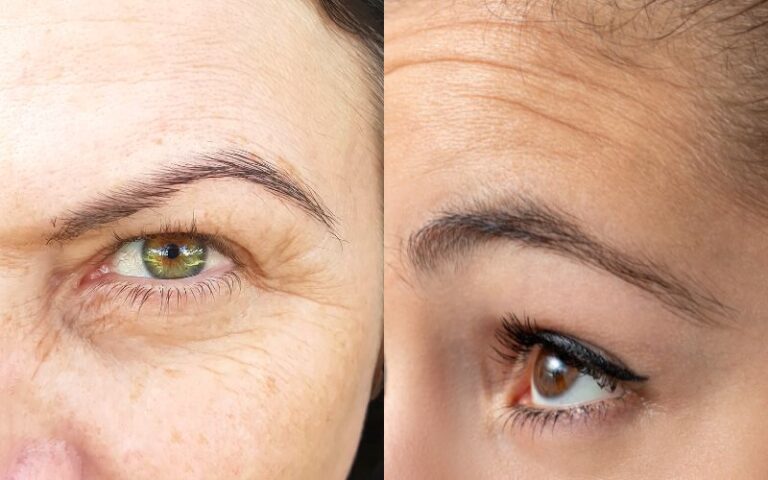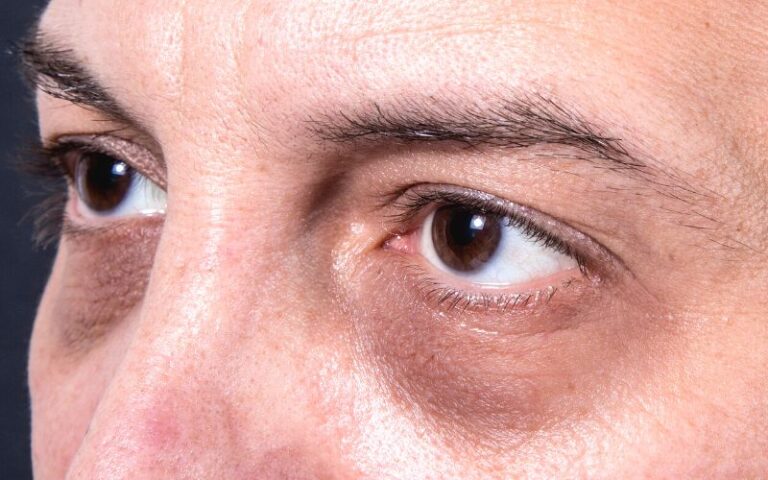Can Seasonal Allergies Really Cause Itchy Skin

Yes, seasonal allergies can cause itchy skin in susceptible individuals. The immune system’s response to allergens can trigger various skin reactions, leading to itchiness, redness, and inflammation.
Seasonal allergies can bring about an array of unpleasant symptoms, including sneezing, congestion, and itchy, watery eyes. While these are commonly associated with allergies, many people wonder if seasonal allergies can also cause itchy skin.
In this article, we will delve into the relationship between seasonal allergies and itchy skin, exploring the underlying mechanisms and offering practical tips for managing the condition. If you’re curious about whether your itchy skin could be related to seasonal allergies, read on to discover the answers.
Table Of Contents
- Seasonal Allergy Symptoms and Itchy Skin
- Can Seasonal Allergies Make Your Skin Itch All Over?
- Can Seasonal Allergies Cause an Itchy Face?
- Seasonal Allergies and Itchy Skin: Exploring the Connection
- Effective Strategies for Managing Itchy Skin
- Over-the-Counter Medications for Itchy Skin
- Prescription Treatments for Allergy-Induced Itchiness
- Natural Remedies to Relieve Itchy Skin
- Lifestyle Changes to Minimize Itchy Skin
- Preventive Measures to Reduce Allergic Reactions
- Seeking Medical Advice for Persistent Itchy Skin
Seasonal Allergy Symptoms and Itchy Skin
Itchy skin, medically known as pruritus, is a bothersome symptom that can occur alongside other seasonal allergy symptoms. When you’re exposed to allergens such as pollen, mold spores, or other environmental triggers, your immune system responds by releasing histamines. Histamines are chemicals that cause inflammation and trigger the body’s allergic response.
The release of histamines can lead to a variety of symptoms, including sneezing, nasal congestion, watery eyes, and yes, itchy skin. The intensity of the itchiness may fluctuate from person to person, and it may affect different areas of the body.
Can Seasonal Allergies Make Your Skin Itch All Over?
Itchy skin caused by seasonal allergies can occur in localized areas or affect the entire body. In some cases, people experience generalized itching, where they feel the urge to scratch all over. This widespread itching can be frustrating and may significantly impact your comfort.
The reason why seasonal allergies can cause itching all over the body is due to the systemic release of histamines. Upon the release of histamines into the bloodstream, they can reach various tissues, including the skin, leading to itchiness throughout the body.
Can Seasonal Allergies Cause An Itchy Face?
Yes, seasonal allergies can cause itching on the face. The skin on the face is often more sensitive and prone to irritation, making it a common area for itchiness during an allergic reaction. If you have seasonal allergies, you may experience itchiness on your cheeks, forehead, around the eyes, or even on your scalp.
Itchy skin on the face can be particularly bothersome, as scratching may not only exacerbate the itch but also cause redness and irritation. It’s important to resist the urge to scratch and seek appropriate treatments to alleviate the discomfort.
Seasonal Allergies and Itchy Skin: Exploring the Connection
The exact mechanism by which seasonal allergies cause itchy skin is not fully understood. However, it is believed to be a result of the release of histamines in response to allergen exposure.
Histamines are compounds generated by the immune system that play a role in the body’s allergic response. They can cause blood vessels to expand, increase mucus production, and trigger itchiness.
When you come into contact with allergens, such as pollen, your immune system recognizes them as a threat. In response, it releases histamines, which bind to specific receptors in the skin, leading to itchiness and other allergic symptoms. The intensity of itchiness can vary depending on the individual’s sensitivity to histamines and the severity of their allergies.
Effective Strategies for Managing Itchy Skin
If you experience itchy skin due to seasonal allergies, several strategies can help alleviate your symptoms. These include:
- Avoiding allergens by staying indoors during peak pollen times
- Keeping windows closed and using air purifiers to reduce allergen exposure
- Taking cool showers and using fragrance-free, hypoallergenic skincare products
- Applying moisturizers regularly to keep the skin hydrated
- Opting for loose-fitting and breathable clothing made from natural fibers
- Using cold compresses or over-the-counter anti-itch creams to soothe itchiness
Over-the-Counter Medications for Itchy Skin
Over-the-counter (OTC) medications can offer temporary relief from itchy skin caused by seasonal allergies. Antihistamines, available in oral or topical forms, help block histamine receptors, reducing itchiness.
Topical corticosteroids can also be effective in reducing inflammation and itching. However, it’s important to follow the instructions and seek guidance from a healthcare professional if your symptoms persist or worsen.
Prescription Treatments for Allergy-Induced Itchiness
In more severe cases of itchy skin, a healthcare professional may prescribe stronger medications to manage the symptoms. These can include prescription-strength antihistamines, corticosteroid creams, or immunomodulators.
It’s crucial to follow the prescribed treatment plan and communicate any concerns or side effects to your healthcare provider.
Natural Remedies to Relieve Itchy Skin
If you prefer natural approaches to managing itchy skin, several remedies may offer relief. These include:
- Applying aloe vera gel to soothe itchiness and inflammation
- Taking oatmeal baths or using oatmeal-based skincare products
- Using cold compresses with chamomile or green tea
- Trying essential oils with anti-inflammatory properties, such as lavender or tea tree oil
- Incorporating foods abundant in omega-3 fatty acids, like fatty fish or flaxseeds, to support skin health
Lifestyle Changes to Minimize Itchy Skin
Certain lifestyle modifications can help minimize itchy skin caused by seasonal allergies. Consider implementing the following changes:
- Washing bedding regularly in hot water to remove allergens
- Using allergen-proof covers for pillows and mattresses
- Vacuuming and dusting frequently to reduce dust and pollen accumulation
- Removing shoes and changing clothes after spending time outdoors
- Limiting outdoor activities during high pollen count days
- Keeping pets off furniture and out of the bedroom, as they can carry allergens
Preventive Measures to Reduce Allergic Reactions
Prevention plays a crucial role in effectively managing itchy skin caused by seasonal allergies. Some preventive measures include:
- Monitoring pollen forecasts to plan outdoor activities accordingly
- Closing windows and using air conditioning during the pollen season
- Wearing sunglasses and a hat to shield the face from allergies
- Showering and changing clothes after spending time outdoors
- Rinsing nasal passages with saline solution to remove allergens
Seeking Medical Advice for Persistent Itchy Skin
While itchy skin caused by seasonal allergies is generally a manageable condition, there are instances where medical advice should be sought. If your itching becomes severe, persists despite home remedies, or is accompanied by other concerning symptoms, it’s important to consult a healthcare professional.
A dermatologist or allergist can evaluate your symptoms, identify any underlying conditions, and recommend appropriate treatments. They may also consider additional tests or refer you to other specialists if necessary.
FAQs
Q: Can seasonal allergies cause itchy skin?
A: Yes, seasonal allergies can cause itchy skin. When allergens such as pollen or mold enter the body, they can trigger an immune response that leads to itching and irritation of the skin.
Q: What are the symptoms of itchy skin caused by seasonal allergies?
A: The symptoms of itchy skin caused by seasonal allergies may include redness, swelling, rash, dryness, flakiness, and a constant urge to scratch the affected area.
Q: How do seasonal allergies contribute to skin itching?
A: Seasonal allergies release histamines in the body, which has the potential to cause blood vessels to expand and become wider, resulting in the skin to become inflamed. This inflammation leads to itching and other skin symptoms.
Q: Is it common for people with allergies to experience itchy skin?
A: Yes, it is common for people with allergies to experience itchy skin. Itchy skin is a common symptom of allergic reactions, including those caused by seasonal allergies.
Q: What are the specific allergens that can trigger itchy skin during certain seasons?
A: Specific allergens that can trigger itchy skin during certain seasons include pollen from trees, grasses, and weeds, as well as mold spores that are more prevalent during humid seasons.
Q: Are there any effective treatments for itchy skin caused by seasonal allergies?
A: Yes, there are several effective treatments for itchy skin caused by seasonal allergies. These include over-the-counter antihistamines, topical corticosteroids, moisturizers, and avoiding exposure to allergens.
Q: Can seasonal allergies worsen existing skin conditions and lead to itching?
A: Yes, seasonal allergies can worsen existing skin conditions, such as eczema or atopic dermatitis, leading to increased itching and discomfort.
Q: How long does itchy skin due to seasonal allergies typically last?
A: The duration of itchy skin due to seasonal allergies can vary depending on the individual and the severity of the allergies. It may last for a few days to several weeks during the allergy season.
Q: Are there any preventive measures to minimize itchy skin during allergy seasons?
A: Yes, there are preventive measures to minimize itchy skin during allergy seasons. These include staying indoors on high pollen days, keeping windows closed, using air purifiers, and washing clothes and bedding frequently.
Q: Are there any natural remedies or home remedies to alleviate itchy skin from seasonal allergies?
A: Some natural remedies or home remedies that may help alleviate itchy skin from seasonal allergies include applying cool compresses, taking oatmeal baths, using aloe vera gel, and avoiding hot showers.
Q: Can Allergies Worsen Existing Skin Conditions?
A: For individuals with preexisting skin conditions, seasonal allergies can potentially worsen their symptoms. Conditions such as eczema, psoriasis, and contact dermatitis can become more inflamed and itchy during allergy season. If you have a known skin condition, it’s crucial to manage both your allergies and the underlying skin condition to find relief.
References
https://www.dermsanantonio.com/blog/can-seasonal-allergies-cause-itchy-skin-and-rashes/
https://www.everydayhealth.com/specialists/allergies/is-itchy-skin-a-symptom-of-pollen-allergies/
https://www.flonase.com/allergies/can-allergies-cause-itchy-skin/
https://allergystore.com/blogs/news/can-seasonal-allergies-cause-your-skin-or-scalp-to-itch





